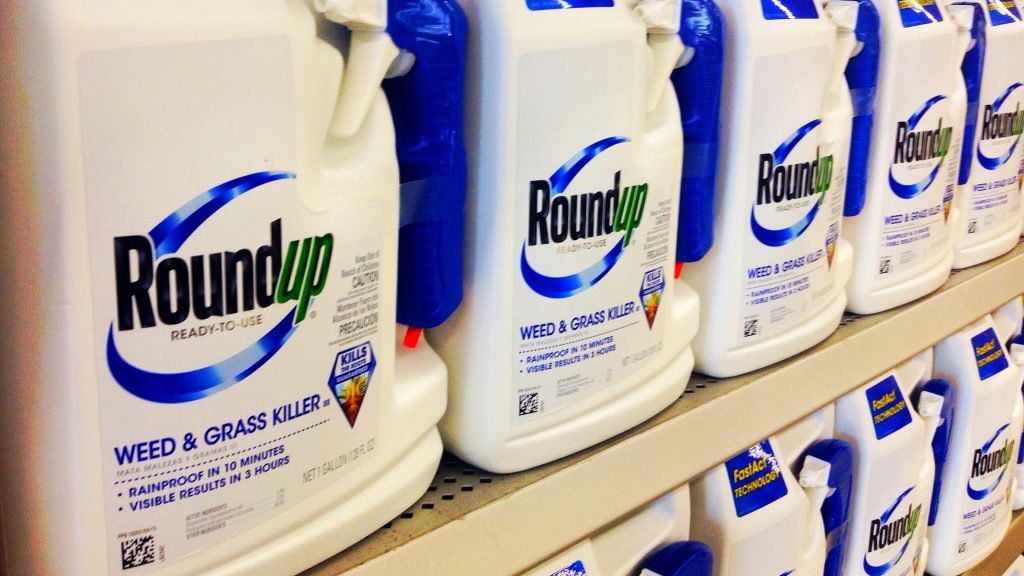France set to become new watchdog in safety assessment of glyphosate

August 8th, 2018
The European Commission looks set to make France the new lead evaluator in an overhaul of the safety assessment of the controversial weedkiller chemical, glyphosate.
The license for glyphosate was renewed for five years last November, with a last-minute U-turn by Germany, the current safety evaluator, ensuring that enough votes were received in favour of renewal.
The Commission wants to see a transfer of responsibility from Germany to France, a country that wants to ban glyphosate – the active ingredient in the popular Roundup weedkiller – in three years.
The issue was on the agenda of the last hearing of the Commission’s Plants, Animals, Food and Feed (PAFF) Committee held on 19 and 20 July. A summary of the meeting is not yet available, with the Commission telling The Green News that it will be uploaded to the Committee’s webpage once it is ready.
The move from the Commission may come as a result of controversy over the previous German-led assessment and the close vote for the renewal.
Controversy over safety assessment
In 2015, the International Agency for Research on Cancer (IARC) classified glyphosate as a Group 1 carcinogen, meaning that it can potentially cause cancer in humans.
The European Food Safety Authority (EFSA), however, determined that the carcinogenic potential of glyphosate was improbable based on a report from the German Federal Institute for Risk Assessment.
It has been found that dozens of pages in the 4,300-page report were copied from a 2012 report from the Glyphosate Task Force, an industry body led by Monsanto.
Speaking to The Green News, Nina Holland, Corporate Europe Observatory (CEO)’s researcher in agribusiness lobbying, said that the EU now clearly wants to give France a “chance to do a better job”. “It’s a good and clear step that confirms the doubts about the way Germany as an official Member State has acted,” she said.
The CEO released a report last June indicating that half of the experts sitting on the scientific panels of the EFSA were in a direct or indirect conflict of interest with the agri-food industry. The EFSA said the report was “misleading” and based on an interpretation of financial interests that the agency “does not agree with”.
Within two weeks of the report’s release, the EFSA announced that it had approved a number of new measures to strengthen its “impartiality and protection against improper influence”. Measures included a new definition of what constitutes a conflict of interest to bring EFSA into line with the rules adopted by the European Commission for its expert committees.
External experts will be also now be barred from joining EFSA’s scientific panels if they have been employed by, acted as consultants to, or have offered scientific advice to organisations that work in areas covered by EFSA’s remit in the preceding two years.
Experts must now also declare the proportion of their annual earnings received from any organisation, body or company whose activities fall within EFSA’s areas of work.

RoundUp Monsanto Photo: Mike Mozart
Industry lobbyists
In April, the European Commission proposed to improve the transparency of scientific studies in the food safety area to allow for additional studies and to make them accessible to citizens.
The problem is that when an inconvenient study is published, Monsanto and other big agri-food companies “pays different scientists to do other research discrediting this study,” according to Ms Holland.
Since September, Monsanto lobbyists have been barred from entering the European Parliament buildings and did not show up at the Monsanto Papers hearing last year.
All parties decided that its lobbyists would be banned, however, Ms Holland said, all of the organisations that Monsanto is a member of can still lobby as they wish.
“The pressure that is being made is so huge that it can actually be legal but it’s still completely illegitimate. It corrupts the democratic decision making.”
“Lobbies are not holding all the science but the real science for the public interest has a hard time and must be defended because otherwise, we’re very lost,” Ms Holland said.
Monsanto did not respond to a request for comment from The Green News.
[x_author title=”About the Author”]







